[This article is repurposed from a post originally published in September 2021; but if you enjoy my thoughts on Relient K’s music, you can hear more in a recent podcast episode that’s only available by signing up for the Friends Club.]
As tends to be the case with many (if not most) artists, I have my fair share of hot takes that will keep this from looking like your run-of-the-mill Relient K ranking. My history with the band has been spotty, as I never really committed myself to checking out an entire album until Five Score and Seven Years Ago released in 2007; I’d missed the hype surrounding the earlier fan favorites and didn’t know much from the band’s first four albums outside of the singles. But I stayed aboard the hype train from 2007 through 2009, when the excellent Forget and Not Slow Down released, and the band had my interest enough that I gave 2016’s Air for Free a few chances, which eventually won me over and became another favorite of mine. However, it wasn’t until 2019 or so that I finally made the plunge and checked out the whole discography; and it wasn’t until August 2021 that I filled in all the gaps and listened to everything, from the independent release All Work No Play (which would be at the bottom of this list if I cared to include it) to the covers album Is for Karaoke. Having now put a good amount of time into dissecting these albums and seeing how well they hit me on musical, melodic, stylistic, lyrical, and comedic levels, here’s my ranking and review of each major release:
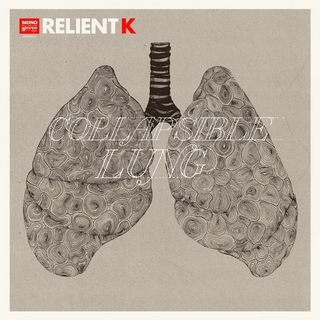
You’ll see later that two of my favorite RK albums are the official full-lengths that released immediately before and after this album, the confounding misstep from 2013 that offers close to nothing that I enjoy or can even recall. It’s a vapid album that I, along with other RK fans, think would’ve been more correctly marketed as a Matt Theissen solo album. While the frontman has always been the primary force behind the band’s compositions, Theissen takes full control here, writing many of these songs with co-writers who were active in the pop game in the early 10’s, with only a few random writing credits appearing from band member Matthew Hoopes. According to interviews, this pop project was something Theissen really needed to get out of his system, but I think it was a dangerous mistake to mar the band’s legacy with what seems to be most fans’ least favorite album. And I want to be clear that this album isn’t bad because it’s such a hard left-turn into pop music; this album scores so lowly for me simply because I don’t think the writing is good. I love pop music, and this collection has maybe two or three songs that I would say are even moderate/average pop compositions. The lyrics are bland, the hooks are either forgettable or altogether absent, and as an RK album, it’s a sad departure from all of their strengths, especially coming directly after the wonderful and mature Forget and Not Slow Down. Thankfully, the band rebounded in a big way, and if Theissen needed to make Collapsible Lung in order for him to later make Air For Free, then I’m glad this album exists. 2 stars.
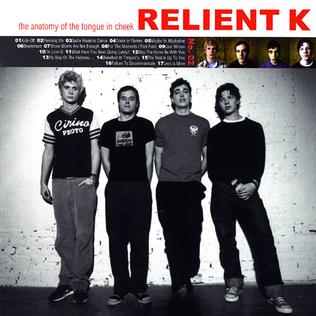
Here’s the first of my wild hot takes for this band. I imagine that the only fans who rank this album very highly are those who most greatly prefer the pop-punk of the band’s first three or four albums, but even for fans who don’t necessarily prefer that early punk sound, most of them seem to like this album a great deal more than I do. It has a few notable “classics” such as album highlight “Pressing On,” but it’s an album that wears thin on my very quickly. The band’s attempts at comedy are always hit-and-miss, with comedy already being such a subjective consideration, (and all the more so with musical comedy); but not only does this album’s comedy fall flat for me — the songs do, too. Even the stronger songs grow tiresome or boring before they’re over. At this point in the band’s career, I don’t think they were particularly adept at sustaining a good idea all the way through to the end of a song, which leads to some tracks taking odd left turns that don’t work for me at all. On paper, this album probably seems like it’s a thoroughly better album than the stylistically similar debut, but I’d take the debut every time. 2.5 stars.

I wouldn’t normally rank a Christmas album among an artist’s official output, (in fact, I’m not often listening to artists that would even release a full-length Christmas album), but Let It Snow Baby is a band-centric album throughout and through, containing some excellent originals and some very RK versions of holiday classics. It doesn’t all click for me, but when it does, the result is exceptional holiday tunes with far more longevity than how gimmicky the conceit of “pop-punk Christmas music” might appear on the surface. And as previously mentioned, the true strength of the album is found on originals like “I Celebrate the Day,” which ranks among my favorite RK tunes and deserves yearly airplay. 3 stars.

Similar to my last entry, a covers album wouldn’t normally need to appear on a list like this…that is, if everything about it didn’t scream “essential.” I am brand new to this album and was fairly blown away by how incredibly fun it is. The band wastes no time getting the party started, with “Girls Just Want to Have Fun” functioning as the perfect introduction to an RK-ified adaptation. Most of the cover choices here work extravagantly well. There are a few examples where the band play it too straight and don’t update a song with that same RK treatment (such as “Africa,” which seems to be a far more popular song to cover now in 2021 than it probably was when this record released a decade ago), but of all the albums I’ve listed thus far, this is the first one that I actively desire to return to. 3.5 stars.
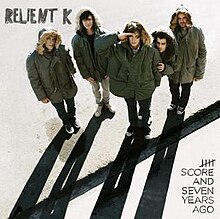
Before any RK fans freak out about the albums you’re about to see ranked so low on my list, please be aware that this is the spot in the lists where we shift into albums that I mostly really enjoy. Five Score is a thoroughly good record, but it’s one that has aged increasingly poorly for me. It was the first RK CD I ever purchased, and I loved it when it released. It has fallen so low for me (basically dropping one spot each time I go through the band’s discography) because in many ways, I think this album is a less interesting rehash of mmhmm. In fact, if it weren’t for the album’s closing track, “Deathbed,” it would be easy to accuse this album of being nothing more than a simplified, sanitized redo of its famous predecessor. The songs are good, with the romantic tracks being especially catchy and charming (“Must’ve Done Something Right” and “The Best Thing”), but this album earns a lot of extra points — points that the first eleven tracks don’t really merit on their own — thanks to how incredible the epic closer is. It is obviously one of RK’s most triumphant moments, tracing the full life of a character from his troubled childhood to his redeemed death, filled with sharp storytelling and gorgeous musical twists and turns. I’ll never not find it goofy to hear Switchfoot’s Jon Foreman be the voice of Jesus at the end of the song, but it’s still a colossal achievement that deserves all the praise it gets. 3.5-4 stars.
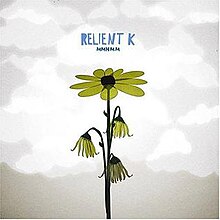
Once again, if you’re upset seeing this album here (a common fan favorite, the band’s best selling album by a long-shot, and a masterpiece to many fans and critics), you can take some backwards comfort in the fact that mmhmm actually used to be even lower on my ranking. So it’s growing on me, a bit, but I still have some grand issues with this album. Some of my issues come down to personal preferences about production: despite how much I loved “Be My Escape” back in 2004, its mixing now rubs me so wrong that I can barely stand listening to it. Meanwhile there are also songs that I think the production is desperately trying to save, such as “High of 75,” a song that I find to be nauseatingly cheesy. In other words, it’s the album’s faults and the songs that don’t click for me (mostly on the front half) that keep me from loving this album as a whole; however, there are plenty of songs worth loving on this album, and my issues with the whole shouldn’t necessarily detract from the pieces that approach perfection. RK reach the greatest heights of their career with the one-two punch of “Which To Bury, Us or the Hatchet” and “Let It All Out,” which segue into each other as a perfect musical and thematic pair. It’s on a level of track listing genius equal to another 2004 album, where “Pain” flows into “Drugs or Me” on Jimmy Eat World’s Futures. During this era, RK were stuck in a bad habit of wrecking the dynamics of their songs by making too many sharp shifts between heavy punk rock and soft piano ballads, but this pairing of rock in one song and subdued balladry in the second allow for this jarring shift without affecting the musical consistency of either track on its own. Other highlights include the lovely closer “When I Go Down” and my vote for the band’s best single ever, “Who I Am Hates Who I’ve Been.” So while mmhmm just barely falls short of my top 5 RK albums, this album made an above-average number of contributions to a “favorite songs” playlist I compiled back in 2020. I’m not sure I still agree with this list, but if you’re curious, here’s the Spotify link to that playlist of (maybe) my top 25 songs: Favorite RK From #25 to #1. 3.5-4 stars.
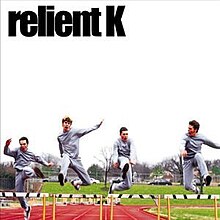
Hopefully this will be my last hot take, but I absolutely love Relient K’s eponymous debut. And please recall that I make that statement with zero nostalgia. I’ve developed an increasingly irritating pet peeve recently: when your love for something old exceeds someone else’s, and that person assumes your love is due to nostalgia. I only heard Relient K for the first time a year or two ago, and it’s held up fantastically well every time I revisit it. This official debut is, to my ears, an all-around stronger record than many of the RK albums that were to follow. It establishes exactly what to expect on the charming opener “Hello McFly” and then never loses focus or falters. There’s not a single weak point or below-average track that I can point to on this collection; they’re all top-notch youthful pop-punk compositions with strong blink-182 vibes, a solid sense of humor, a killer sense of melody, and some poignant moments of in-your-face Christianity. A few songs offer some different sounds or instruments to keep things interesting and distinct, but it all fits together as unpretentious, simple pop-punk, done about as well as any up-and-coming teenagers could in the early 00’s. A hearty 4 stars from me.
I think the controversy and confusion around me liking this album more than mmhmm can be well summarized by using my aforementioned “top 25” playlist to make an important point about what I like about albums: chiefly, I prefer a consistent experience front-to-back. How is it that mmhmm has five appearances on my favorite songs and yet Relient K, an album I like better, has zero? This comes down to a foundational idea about how you think about albums and how you enjoy them. Consider a hypothetical album comprised half of 5-star songs (whatever that means to you) and the other half comprised of 3-star songs; then compare that to another hypothetical album comprised entirely of 4-star songs. Some listeners would prefer the former album, believing that the presence of 5-star songs outweighs an album where no 5-star songs are present. Other listeners might prefer the former album because they simply skip over those 3-star songs and think about the album predominantly in consideration of the songs they love. I fall into a camp of listeners that rarely skips songs and would prefer an album experience where it’s really difficult to pick favorites, versus an album with obvious standouts and some skippable tracks. I go deeper into this topic (with Relient K used as a specific example) on a podcast episode with my friend Theo, which you can check out here.
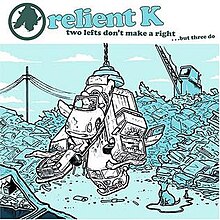
Note: There is a big shift in my ranking at this juncture. You could easily be fooled into think that I like album #4 just one notch more than I like album #5, but such is not the case. In reality, albums #5-7 are nearly a three-way-tie of albums to which I would give 3.5-4 stars; meanwhile, albums #1-4 are nearly a four-way-tie of album to which I would consider giving that rare, glowing 5 star rating. Throughout my writing of this blog post, I’ve juggled these four spots around, frequently second-guessing how I should order them. So please know that the ranking of my top 4 comes with a grain of salt.
As has been the case for a while, since finally getting into this album a year or two ago, I remain on the verge of a 5-star rating for this beast. Two Lefts, from its iconic single and opener “Chap Stick, Chapped Lips, and Things Like Chemistry” to its epic closer (and possibly best RK song ever?) “Jefferson Aero Plane,” is beat-for-beat one of the best punk/pop-punk albums I’ve ever heard and includes some of the strongest compositions in Thiessen’s illustrious songbook. We get strong hints of his trademark, Ben Folds-style piano rock, but that style’s addition to the band’s now-established brand of Christian pop-punk does nothing to dilute the rock or the comedy. The hooks, the lyrics, the music, the production — everything here is top-notch and coalesces wonderfully, making for a listening experience that tightens and elevates everything about the preceding two albums, without ever losing momentum or offering filler. Many of my favorites start showing up halfway through the album (“Over Thinking,” “I Am Understood?,” “Getting Into You,” “From End to End”), but you could be fooled into thinking this album’s top-heavy by its killer opening stretch of singles or could’ve-been-singles. This is just killer songwriting, through and through, made all the stronger by music and performances that symbiotically enhance the great, clever, memorable songwriting. A strong 4.5+ stars.

2009’s Forget and Not Slow Down began was can be considered RK’s “mature” era — in other words, their “post-pop-punk” era when they decided to leave punk (and comedy) behind. But if they were barely a pop-punk band anymore when Forget released, they were barely even a band anymore when Air For Free released in 2016. Down to only the Matts (founding members Matt Thiessen and Matt Hoopes), the duo marched forwarded and created yet another one of their masterpieces, in a move reminiscent to when Paramore created their sprawling, genre-jumping self-titled album in the wake of losing their founding drummer and guitarist. Freed from conventional band members (and thus freed from the confines of conventional rock music), Hoopes and Thiessen show a willingness to try anything across these sixteen tracks — and for the most part, they succeed brilliantly. Sure, Air for Free isn’t quite as genre-bending or masterfully executed as Paramore, but the overwhelming majority of cuts on this collection rank highly as some of RK’s best songs. It also helps that there’s an abundance of interconnected themes that tie together what could have been a jumbled mess or random tracks, such as the trilogy of “Bummin,” Sleepin,” and “Runnin” or the obvious intentionality behind placing “Flower” and “Marigold” back-to-back. Granted, my ideal version of this album would see about 25% of the songs hit the cutting room floor (including even the title track), but even then, we’re still talking about twelve tracks that I love — which is more than most albums can boast. Ultimately, it’s those few tracks I don’t care for that keep this album out of the #1 spot for me, but this is still a wild late-career achievement for a band that I truly thought was done for. If you haven’t heard this album or haven’t given it a chance in a while, check out highlights such as “Local Construction” (with its fantastic and overly relatable metaphors), “Cat,” “Mountaintop” (which contains the too-good-to-true rhyme of “Up on a mountaintop” and “Open my mouth to talk”), “Elephant Parade” (where the band shows that they’ve finally mastered how to take songs on unexpected shifts halfway through), my personal favorite “Marigold,” and the emotionally satisfying closer “Heartache.” 4.5+ stars.

I still remember buying this album in 2009 and finding myself in disbelief over the huge leap in growth from Five Score to here. Even back then, when my love for Five Score was at its highest, Forget and Not Slow Down quickly usurped its spot as my favorite Relient K studio album (a spot that it technically still holds…but more on that later). This is my wife’s favorite RK album, and I expect it to be the favorite of many fans. FANSD holds that special feeling of “seeing your kid all grown up,” so to speak; this is where RK transformed from the cheeky, goofy kids down the street who enjoyed playing harmless pranks into the adults who have experienced enough life experiences and heartache to show some solemn insight and self-reflection on the matters. Not that punk rock and humorous lyrics are wholly absent here, but their appearances are few and far between, alongside seeming rather out of place when they do appear. (My least favorite lyric on the whole album is a John Cusack namedrop on the otherwise great “Part of It.”) There’s also a certain air of prestige that hovers around these fifteen tracks — fifteen tracks that only add up to ten distinct songs. But those ten songs get filled out with intros, outros, and alternative versions, all segueing seamlessly in and out of each other to create a greater-than-its-sum listening experience where you wouldn’t dare skip a track. I sometimes think that it’s these very song extensions that trick me into placing this album over Air For Free and Two Lefts; yet as gimmicky as these extra tracks might seem on paper, they work extremely well in practice — I don’t want to hear “Candlelight” without hearing “Flare” directly afterwards, nor do I want to hear “Savannah” without hearing “Oasis” first. And then there’s the middle stretch of songs that are so musically thrilling and emotionally complex that they standout without any of these extra tracks: “Therapy,” album standout “Over It,” and perhaps the most rocking entry in RK’s catalog, the star-studded “Sahara” (featuring the singers of House of Heroes, Underoath, and The Classic Crime). In many ways, this album released at the perfect “growing up” age for me, as a senior in high school, but even now, over a decade later, this is still the Relient K album that I am most likely to listen to and relate to. 4.5+ stars.
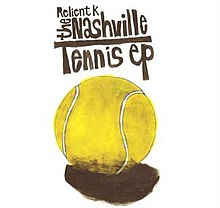
Eagle-eyed fans keeping count at home might have noticed that, by the time I reached #2 on this list, I had exhausted the list of Relient K’s full-length albums. However, back in 2008, the band released something that was too good of a deal for me not to purchase: a two-disc set for only $7, with one disc of brand new material and one disc of B-sides and rarities. This irresistible deal was branded as The Birds and the Bee Sides, but this really only refers to the aforementioned second disc; the first CD, with all brand new material, was titled The Nashville Tennis EP, and to this day, I do not understand why the band didn’t release this as the official follow-up to Five Score and Seven Years Ago. Granted, releasing an official album is a big deal — there is a great amount of stress and expectation that surrounds the release of a new LP. So I imagine that Nashville Tennis (which, by every measurement, is too long has too many songs to actually be an EP) was a less stressful affair, one where the band could release whatever music they wanted to, under a zero-pressure environment. Likewise, I imagine that this lack of constraints contributed heavily to the sheer quality on display, not to mention the wonderful breadth of styles. “Where Do I Go From Here?” starts the collection perfectly, showing off some punk chops that we’ve rarely heard from the boys, since, and continues onward in what is almost assuredly the strongest run of six consecutive tracks in the band’s whole discography, from the gorgeous country-leaning “At Least We Made It This Far” to the heavy and hooky “The Last, The Lost, The Least,” which allowed bassist John Warne to step up to the mic without missing a beat. (The song even received consistent airplay on Christian rock radio.) Every band member was actually given the chance to sing their own compositions on the EP, much like Weezer’s The Red Album (which had ironically released just a few weeks earlier); however, “The Last” is the most successful of the four band member’s songs, the others of which generally play off like “joke” tracks and which are the only skippable offerings to be found here. Elsewhere, you’ll find some of Thiessen’s strongest songwriting ever, from the meditative “Where Was No Thief” to the somber “Curl Up and Die” to the epic “There Was Another Time in My Life,” which shows off just how much this band is able to accomplish in under three minutes. Altogether, I find myself unable to award this “EP” five stars — between the joke songs combined with the B-sides that are attached to this release — but a 4.5 star rating is easily merited here. I have a Spotify playlist where I’ve constructed the most perfect listening experience I can imagine getting from this band, where I have replaced the joke songs with my favorite Bee-sides: you can listen here.


